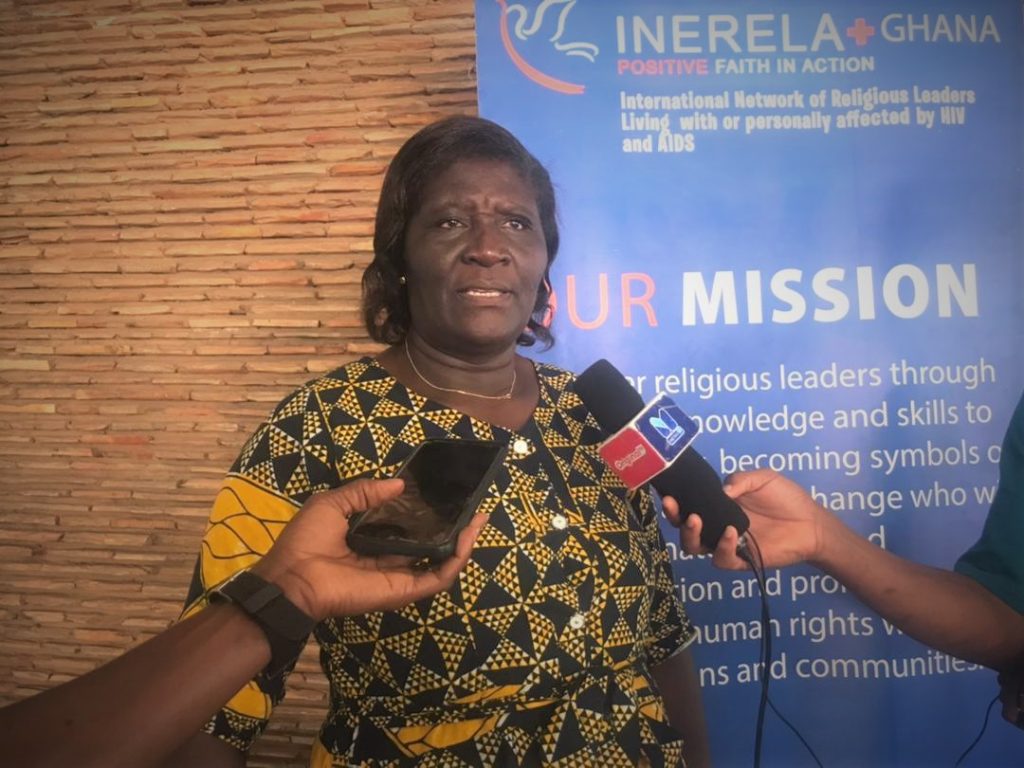By Benjamin A. Commey
Accra, Aug 21, GNA — Ghana’s HIV and AIDS Ambassador, Reverend John Kworshie Azumah, has urged government to resume intensive public education about the virus to stem the current rate of infection.
Ghana has seen an upsurge in infections in recent years, especially among the younger population.
Data from the Ghana AIDS Commission indicates that a total of 18,928 new infections of the virus were recorded in the country in 2020.
In all, 5,211 of these infections were reported in young people between the ages of 15 to 24, representing 28 per cent of the total infections recorded that year.
Also, as at the end of 2020, some 346,120 people were living with HIV in the country, with a prevalence rate of 1.6 per cent.
Speaking in an interview with the Ghana News Agency (GNA), on the sidelines of a capacity building workshop for some religious leaders, in Accra, Rev Azumah said immediate and more drastic steps must be taken to reverse the current trend.
He said it was regrettable that the Ghana AIDS Commission and the government had failed to allocate resources to sustain public education about the virus.
“We are having more HIV cases in the country and if you see the Ghana Health Service data, it shows that more people are getting infected and that is a very big worry as a country,” he noted.
He added that: “But why is the education so low? We put it at the doorstep of government because in the past, we saw government being proactive, putting resources together to educate the population and that brought the virus down. Unfortunately, we don’t see some of those things again.”
The HIV/AIDS ambassador warned that more infections would be recorded by the end of this year if nothing drastic was done to curb the situation.
The workshop, orgainsed by International Network of Religious Leaders Living with or personally affected by HIV and AIDS (INERELA+ Ghana), sought to empower the religious leaders to use their power in society to help reduce stigmatisation against affected person, if not eradicate it entirely.
Discussions at the workshop centered on stigmatisation in the religious setting, sexual gender-based violence and mental healthcare for survivors.
It was funded by the United Nations Women Trust Fund.
Rev. Azumah urged religious leaders to help put an end to the persistent stigmatisation against persons living with the virus as that hampered efforts at eradicating the disease.
Rev. Azumah who has lived with the virus for more than two decades advised the public to accept and use the antiretroviral drugs when declared HIV positive, to extend their lifespan.
Mrs Paulina Essel, a Licensed Counsellor, entreated the religious leaders to be extremely careful about the kind of counselling they offered their members.
She explained that, as leaders, they wielded a lot of influence whose advice could either positively or negatively affect people.
Mrs Mercy Acquah-Hayford, the National Coordinator for INERELA+ Ghana, urged the public especially the youth to be self-cautious, abstain from premarital sex or use the condom if the need arose to protect them against the virus.
She also appealed to the government to establish more shelters to house survivors of stigmatisation.

GNA